Introduction to AI Marketing Agents
AI marketing agents are transforming the landscape of digital marketing by automating processes, enhancing customer engagement, and optimizing campaigns. As businesses increasingly adopt these technologies, understanding their role and impact becomes essential for maintaining competitive advantage. According to recent market research, the global AI in marketing market is projected to reach $40.09 billion by 2025, growing at a compound annual growth rate (CAGR) of 29.79% from 2020 to 2025. This rapid growth underscores the critical importance of AI marketing agents in modern business strategies.
The Current Landscape of AI Marketing Agents
The current market for AI marketing agents is characterized by a surge in demand for automation tools that enhance operational efficiency and improve return on investment (ROI). Companies are leveraging AI-driven solutions to analyze consumer behavior, personalize content, and streamline marketing workflows. Research indicates that businesses utilizing AI in their marketing strategies can experience up to a 30% increase in conversion rates compared to those relying solely on traditional methods.
Moreover, the integration of machine learning algorithms allows these agents to continuously learn from data inputs, refining their strategies over time. This adaptability not only enhances campaign performance but also reduces the time spent on manual tasks, allowing marketers to focus on strategic initiatives.
The Role of AI Marketing Agents in Modern Businesses
AI marketing agents play a pivotal role in driving efficiency and effectiveness across various marketing channels. By automating repetitive tasks such as data analysis, customer segmentation, and content generation, these agents free up valuable resources for more strategic activities. For instance, an e-commerce company might employ an AI agent to analyze purchasing patterns and recommend personalized product suggestions in real-time, significantly enhancing the customer experience.
Furthermore, the ROI associated with implementing AI marketing agents is substantial. A study conducted by Mc Kinsey found that companies using AI-driven tools can achieve up to a 50% reduction in costs related to customer acquisition and retention efforts. This financial benefit highlights why businesses are increasingly investing in these technologies as part of their core marketing strategies.
Preview of the Guide’s Comprehensive Scope
This guide aims to provide an exhaustive exploration of AI marketing agents, covering their functionalities, benefits, implementation strategies, and future trends. Key sections will include:
- Understanding AI Marketing Agents: A detailed overview of what these agents are and how they operate.
- Benefits and Use Cases: Real-world applications demonstrating how businesses have successfully integrated AI into their marketing efforts.
- Implementation Strategies: Step-by-step guidance on deploying AI marketing agents effectively within various organizational contexts.
- Future Trends: Insights into emerging developments that will shape the future of AI in marketing.
By delving into these topics, this guide will equip readers with the knowledge needed to leverage AI marketing agents effectively within their organizations. As we progress through this comprehensive resource, it will become clear that embracing these technologies is not merely an option but a necessity for businesses aiming to thrive in an increasingly competitive digital landscape.
Understanding AI Marketing Agents
AI marketing agents represent a significant advancement in the integration of artificial intelligence platforms within marketing strategies. These agents utilize machine learning algorithms, natural language processing frameworks, and data analytics to automate and enhance various marketing tasks. This section delves into the core concepts, principles, historical context, key components, and underlying mechanisms of AI marketing agents.
Core Concepts of AI Marketing Agents
AI marketing agents are software applications designed to perform marketing tasks autonomously or semi-autonomously. They leverage vast amounts of data to make informed decisions, optimize campaigns, and improve customer interactions. The primary functions of these agents include:
- Data Analysis: AI marketing agents analyze consumer behavior and market trends by processing large datasets. This enables them to identify patterns that inform strategic decisions.
- Personalization: By utilizing customer data, these agents can create personalized marketing messages tailored to individual preferences and behaviors.
- Automation: Routine tasks such as email campaigns, social media posting, and ad placement can be automated by AI marketing agents, freeing up human resources for more strategic initiatives.
- Predictive Analytics: These agents use historical data to forecast future trends and consumer behaviors, allowing businesses to proactively adjust their strategies.
Historical Context and Evolution
The concept of AI in marketing has evolved significantly over the past few decades. Initially, marketing relied heavily on traditional methods such as print advertising and direct mail. The advent of the internet in the 1990s marked a pivotal shift towards digital marketing.
In the early 2000s, companies began using basic algorithms for customer segmentation and targeting. However, it was not until advancements in machine learning and big data analytics that AI marketing agents emerged as a viable solution for businesses seeking efficiency and effectiveness in their campaigns.
By the 2010s, tools like chatbots began gaining popularity as early forms of AI marketing agents. These systems could handle customer inquiries automatically, providing immediate responses based on pre-programmed scripts. As technology progressed, more sophisticated AI models were developed that could learn from interactions and improve over time.
Today’s AI marketing agents are capable of complex tasks such as sentiment analysis on social media platforms or optimizing ad spend across multiple channels in real-time.
Key Components of AI Marketing Agents
Understanding the essential components that make up AI marketing agents is crucial for leveraging their capabilities effectively:
- Machine Learning Algorithms: These algorithms enable the agent to learn from data inputs without being explicitly programmed for specific tasks.
- Natural Language Processing (NLP): NLP allows the agent to understand and process human language, facilitating interactions through chatbots or voice-activated systems.
- Data Integration Tools: Effective AI marketing agents require robust data integration capabilities to pull information from various sources (e.g., CRM systems, social media platforms).
- User Interface (UI): A user-friendly interface is essential for marketers to interact with the agent effectively and monitor its performance.
- Analytics Dashboard: This component provides insights into campaign performance metrics, allowing marketers to assess effectiveness quickly.
Underlying Mechanisms and Theoretical Foundations
The theoretical foundations of AI marketing agents are rooted in several disciplines including computer science, psychology, and statistics. The primary mechanisms through which these agents operate include:
- Data Mining: This involves extracting valuable information from large datasets using statistical methods and algorithms.
- Behavioral Modeling: By analyzing past consumer behavior patterns, AI marketing agents can predict future actions with a degree of accuracy.
- Feedback Loops: Continuous learning is facilitated through feedback loops where the agent refines its strategies based on performance outcomes.
Research indicates that businesses employing AI-driven solutions experience higher engagement rates due to improved targeting accuracy (source needed). Furthermore, studies show that companies utilizing predictive analytics report a significant increase in ROI compared to those relying solely on traditional methods (source needed).
In conclusion, understanding the fundamental concepts behind AI marketing agents is essential for businesses aiming to leverage these technologies effectively. As this field continues to evolve rapidly, staying informed about advancements will be critical for maintaining a competitive edge in digital marketing strategies.
Practical Implementation of AI Marketing Agents
The deployment of AI marketing agents can significantly enhance marketing efficiency and effectiveness. This section provides a structured approach to implementing these agents, addressing methodologies, common challenges, and actionable solutions.
Step-by-Step AI Marketing Agents Deployment
- Define Objectives and KPIs
Clearly outline the goals for integrating AI marketing agents. Common objectives include improving customer engagement, increasing conversion rates, or enhancing data analysis capabilities. Establish Key Performance Indicators (KPIs) that align with these goals, such as customer acquisition cost (CAC), return on investment (ROI), or customer lifetime value (CLV). Research indicates that organizations with clearly defined objectives experience a 30% higher success rate in their AI initiatives.
- Assess Current Infrastructure
Evaluate your existing marketing technology stack to identify compatibility with AI marketing agents. Consider factors such as data integration capabilities, existing CRM systems, and analytics tools. A comprehensive assessment ensures that the selected AI tools can seamlessly integrate into your current processes.
- Select Appropriate AI Marketing Tools
Choose tools that align with your objectives and infrastructure. Popular options include:
– Chatbots: For customer service automation.
– Predictive Analytics Tools: To forecast customer behavior.
– Content Generation Software: For personalized marketing materials.
Tools like Hub Spot and Salesforce offer robust functionalities but may require extensive customization to meet specific needs.
- Data Preparation and Management
Effective AI marketing agents rely on high-quality data. Ensure that your data is clean, organized, and relevant. Implement data governance practices to maintain data integrity over time. According to industry standards, businesses should aim for at least 80% accuracy in their datasets before deploying AI solutions.
- Pilot Testing
Conduct a pilot test with a small segment of your audience before full-scale implementation. This approach allows you to assess the effectiveness of the AI marketing agent in real-world scenarios while minimizing risk. Collect feedback from users to refine the tool’s functionality.
- Training and Development
Invest in training for your team to ensure they understand how to leverage AI marketing agents effectively. Provide resources that cover both technical aspects and strategic applications of the technology. Studies show that organizations that prioritize employee training see a 25% increase in productivity related to new technologies.
- Full-Scale Implementation
Once testing is complete and adjustments have been made based on feedback, proceed with full-scale deployment. Monitor performance closely during this phase to quickly address any issues that arise.
- Continuous Optimization
Post-implementation, continuously analyze performance against established KPIs. Use insights gained from analytics to optimize campaigns and refine the use of AI marketing agents over time.
Common Challenges and Actionable Solutions
- Data Quality Issues
Many organizations struggle with poor data quality when implementing AI marketing agents. To mitigate this challenge, establish rigorous data collection and cleaning processes prior to deployment.
- Integration Difficulties
Integrating new tools with existing systems can be complex. To address this, choose platforms known for their compatibility with popular CRM systems or consider middleware solutions that facilitate integration.
- Resistance to Change
Employees may resist adopting new technologies due to fear of job displacement or unfamiliarity with the tools. Foster a culture of innovation by emphasizing how AI can augment human capabilities rather than replace them.
- Budget Constraints
Implementing advanced AI solutions can be costly upfront; however, consider phased investments where you gradually scale up based on ROI assessments from initial deployments.
Timelines and Resource Requirements
The timeline for implementing AI marketing agents typically spans three to six months depending on organizational size and complexity:
- Weeks 1-2: Define objectives and assess current infrastructure.
- Weeks 3-4: Select appropriate tools and prepare data.
- Weeks 5-8: Conduct pilot testing.
- Weeks 9-12: Full-scale implementation followed by continuous optimization.
Resource requirements will vary but generally include:
- Personnel: Data analysts, IT specialists, marketers trained in digital technologies.
- Budget: Allocate funds for software licenses, training programs, and potential consultancy fees for expert guidance.
Conclusion
Implementing AI marketing agents requires careful planning, execution, and ongoing evaluation to realize their full potential in enhancing marketing strategies. By following a structured approach outlined above—defining clear objectives, selecting appropriate tools, ensuring data quality, addressing common challenges proactively—organizations can position themselves effectively in an increasingly competitive landscape driven by technology advancements in marketing automation.
For further insights into optimizing specific areas such as email campaigns or understanding broader benefits of automation in marketing strategies, refer to our related articles on TechnoBelieve.com/ai-for-email-marketing/”>AI for Email Marketing and AI Marketing Automation .
professional tools and services and Platforms for AI Marketing Agents
The integration of AI marketing agents into business strategies has transformed how organizations approach customer engagement, data analysis, and campaign management. This section explores various tools and platforms that facilitate the deployment of AI marketing agents, providing a comprehensive overview of their features, benefits, and real-world applications.
Top AI Marketing Agents professional tools and services for Business
Several tools are designed to enhance marketing efforts through automation and intelligence. Below are some of the leading solutions currently available:
1. Hub Spot
Overview: Hub Spot offers a robust suite of marketing tools that leverage AI to optimize customer interactions. Its platform includes features for email marketing, social media management, and customer relationship management (CRM).
Pros:
- Comprehensive integration with sales and service tools.
- User-friendly interface suitable for businesses of all sizes.
- Extensive educational resources and community support.
Cons:
- Pricing can be high for advanced features.
- Some users report a steep learning curve for complex functionalities.
Use Case: A mid-sized e-commerce company utilized Hub Spot’s AI capabilities to personalize email campaigns based on user behavior. As a result, they experienced a 30% increase in open rates and a 20% boost in sales conversions.
2. Salesforce Einstein
Overview: Salesforce Einstein is an AI layer within the Salesforce ecosystem that enhances CRM functionalities by providing predictive analytics and personalized recommendations.
Pros:
- Seamless integration with existing Salesforce products.
- Powerful data analysis capabilities that improve lead scoring.
- Customizable dashboards for real-time insights.
Cons:
- Requires familiarity with the Salesforce ecosystem.
- Implementation can be resource-intensive.
Use Case: A financial professional automation services firm implemented Salesforce Einstein to analyze customer data trends. This led to more targeted marketing campaigns, resulting in a 25% increase in client engagement.
3. Marketo Engage
Overview: Marketo Engage specializes in lead management and marketing automation, utilizing AI to streamline campaign execution and performance tracking.
Pros:
- Advanced segmentation capabilities for targeted marketing.
- Strong analytics tools to measure campaign effectiveness.
- Integrates well with other Adobe products.
Cons:
- The interface may be less intuitive compared to competitors.
- Higher costs associated with premium features.
Use Case: A B2B software company used Marketo Engage to automate lead nurturing workflows. This resulted in a 40% reduction in manual outreach efforts while improving lead conversion rates by 15%.
Comparison of Key Features
| Tool | Key Features | Pricing Model | Best For |
|---|---|---|---|
| Hub Spot | Email automation, CRM integration | Tiered subscription | Small to mid-sized businesses |
| Salesforce Einstein | Predictive analytics, customizable dashboards | Subscription-based | Enterprises |
| Marketo Engage | Lead scoring, advanced segmentation | Tiered subscription | B2B marketers |
Real-World Applications Across Industries
AI marketing agents have been successfully implemented across various sectors, demonstrating their versatility and effectiveness:
Retail Industry
A leading retail chain employed an AI-driven chatbot on its website to assist customers with product inquiries. This not only enhanced customer satisfaction but also reduced response times by over 50%. The chatbot’s ability to analyze customer queries allowed the retailer to tailor product recommendations effectively.
Financial Services
A major bank integrated AI marketing agents into its mobile app to provide personalized financial advice based on user spending habits. This initiative led to increased user engagement and a significant uptick in cross-selling opportunities, contributing to a 15% rise in product uptake among app users.
Healthcare
A healthcare provider utilized AI-driven email campaigns targeting patients based on their health records and appointment history. By sending timely reminders and personalized health tips, the organization improved patient adherence rates by 20%, showcasing the potential of AI in enhancing patient outcomes through targeted communication.
Criteria for Selecting AI Marketing Agents Tools
When evaluating tools for implementing AI marketing agents, consider the following criteria:
- Integration Capabilities: Ensure the tool can seamlessly integrate with existing systems such as CRM or e-commerce platforms.
- User Experience: Assess the ease of use; a user-friendly interface can significantly reduce training time.
- Scalability: Choose solutions that can grow with your business needs without requiring extensive reconfiguration.
- Analytics Features: Look for robust analytics capabilities that provide actionable insights into campaign performance.
- Support and Resources: Evaluate the availability of customer support and educational resources that can aid implementation and usage.
Conclusion
The landscape of digital marketing is evolving rapidly due to advancements in AI technologies. By leveraging sophisticated tools such as Hub Spot, Salesforce Einstein, and Marketo Engage, businesses can enhance their marketing strategies through automation and data-driven decision-making. As organizations continue to adopt these solutions, understanding their unique features, applications across industries, and selection criteria will be crucial for maximizing ROI from AI marketing agents.
Advanced Techniques and Emerging Trends in AI Marketing Agents
As the landscape of digital marketing evolves, AI marketing agents are at the forefront of this transformation. These sophisticated tools leverage machine learning, natural language processing, and data analytics to enhance marketing strategies. This section delves into advanced methodologies, emerging trends, and future developments in AI marketing agents, providing actionable insights for businesses looking to optimize their marketing efforts.
The Future Landscape of AI Marketing Agents
The future of AI marketing agents is characterized by continuous innovation and integration with other technologies. Research indicates that by 2025, the global market for AI in marketing is expected to reach $40 billion, driven by advancements in predictive analytics and personalization capabilities. Companies are increasingly adopting these agents to streamline operations and improve customer engagement.
One notable trend is the rise of hyper-personalization. AI marketing agents analyze vast amounts of consumer data to deliver tailored content and recommendations. For instance, Netflix employs sophisticated algorithms that suggest shows based on user viewing history and preferences. This level of personalization not only enhances user experience but also significantly increases conversion rates.
Cutting-Edge Research and Innovations
Recent studies highlight several cutting-edge innovations within the realm of AI marketing agents. One such advancement is the integration of sentiment analysis tools that gauge consumer emotions through social media interactions. By understanding sentiment, brands can adjust their messaging in real-time to align with audience perceptions.
Moreover, advancements in generative AI are enabling marketers to create high-quality content at scale. Tools like Open AI’s GPT-3 can generate blog posts, social media updates, and even ad copy based on minimal input from users. This capability allows businesses to maintain a consistent brand voice while saving time on content creation.
Expert-Level Strategies for Optimization
To maximize the effectiveness of AI marketing agents, businesses should adopt several expert-level strategies:
- Data Quality Management: Ensure that the data fed into AI systems is accurate and relevant. Poor data quality can lead to ineffective campaigns.
- Continuous Learning: Implement machine learning models that adapt over time based on new data inputs. This approach helps refine targeting strategies and improves overall campaign performance.
- Cross-Channel Integration: Utilize AI marketing agents across various platforms—social media, email, and websites—to create a cohesive customer journey. For example, integrating chatbots on websites with email follow-ups can enhance customer support while driving conversions.
- A/B Testing Automation: Leverage AI tools to automate A/B testing processes for different campaigns. This allows marketers to quickly identify which strategies yield the best results without extensive manual effort.
Industry Evolution and Predictions
The evolution of AI marketing agents is expected to continue at an accelerated pace as more businesses recognize their value. Experts predict that by 2025, we will see a significant shift towards autonomous marketing systems capable of executing complex campaigns with minimal human intervention.
Additionally, ethical considerations surrounding data privacy will shape how these tools are developed and implemented. As regulations like GDPR become more stringent, companies will need to ensure transparency in how they use consumer data while leveraging AI capabilities.
Conclusion
AI marketing agents represent a critical component of modern digital marketing strategies. By embracing advanced techniques such as hyper-personalization and sentiment analysis while implementing robust optimization strategies, businesses can harness the full potential of these tools. As the industry continues to evolve, staying informed about emerging trends will be essential for maintaining a competitive edge in an increasingly automated marketplace.
In summary, understanding the sophisticated methodologies behind AI marketing agents not only prepares businesses for current challenges but also positions them strategically for future opportunities in an ever-changing landscape.
Conclusion and Key Takeaways
As we conclude this comprehensive guide on AI marketing agents, it is essential to synthesize the critical insights and actionable strategies that have been discussed. The integration of AI into marketing practices is not merely a trend; it represents a significant evolution in how businesses engage with their customers, optimize campaigns, and drive growth. Below are the key takeaways and next steps for leveraging AI marketing agents effectively.
Key Takeaways
- Understanding AI Marketing Agents: AI marketing agents utilize machine learning algorithms to analyze data, automate tasks, and enhance decision-making processes. They can significantly improve efficiency by handling repetitive tasks, allowing marketers to focus on strategic initiatives.
- Benefits of Implementation: Research indicates that businesses employing AI marketing agents experience improved customer targeting, increased engagement rates, and higher conversion rates. For instance, companies using predictive analytics can tailor their messaging based on consumer behavior patterns.
- Diverse Applications: AI marketing agents can be applied across various channels including email marketing, social media management, content creation, and customer service automation. Each application offers unique advantages that contribute to a cohesive marketing strategy.
- Choosing the Right Tools: Selecting the appropriate AI marketing agent is crucial for success. Factors to consider include ease of integration with existing systems, scalability, user-friendliness, and the specific needs of your business. Tools like Hub Spot and Salesforce offer robust solutions tailored for different business sizes.
- Ethical Considerations: As organizations adopt AI technologies, they must also address ethical concerns related to data privacy and algorithmic bias. Establishing transparent practices will help build trust with customers while ensuring compliance with regulations.
- Future Trends: The landscape of AI in marketing is rapidly evolving. Emerging trends such as hyper-personalization and real-time analytics are set to redefine customer engagement strategies in the coming years.
Your Next Steps to AI Marketing Agents Mastery
To effectively leverage the insights gained from this guide on AI marketing agents, consider implementing the following strategic recommendations:
- Conduct an Internal Audit: Assess your current marketing processes to identify areas where AI can enhance efficiency or effectiveness. This audit should include evaluating existing tools and determining gaps that AI could fill.
- Pilot an AI Solution: Start small by piloting one or two AI marketing agents within your organization. Monitor performance metrics closely to evaluate their impact on your campaigns before scaling up.
- Invest in Training: Ensure that your team is equipped with the necessary skills to work alongside AI tools effectively. Providing training sessions will enhance their understanding of how to maximize these technologies for better outcomes.
- Stay Informed on Industry Developments: The field of AI is continuously advancing; thus, staying updated on new technologies and best practices is vital for maintaining a competitive edge.
- Engage with Experts: Collaborate with industry experts or consultants who specialize in AI implementation services in marketing. Their insights can provide valuable guidance tailored to your specific business context.
- Evaluate Performance Regularly: Establish key performance indicators (KPIs) relevant to your use of AI marketing agents and evaluate them regularly to ensure optimal performance and alignment with business objectives.
Final Insights
The integration of AI marketing agents into your business strategy presents substantial opportunities for growth and efficiency enhancement. By understanding their capabilities and implementing them thoughtfully, organizations can not only streamline operations but also create more personalized experiences for their customers.
As you embark on this journey towards mastering AI in your marketing efforts, remember that continuous learning and adaptation will be key drivers of success in this dynamic landscape. Embrace innovation while remaining committed to ethical practices that foster trust among your audience.
By following these guidelines and leveraging the insights provided throughout this guide, you position yourself at the forefront of modern marketing practices powered by artificial intelligence.
Frequently Asked Questions about AI Marketing Agents
Q: What are AI marketing agents, and how do they function?
A: AI marketing agents are software tools that utilize artificial intelligence to automate and enhance marketing tasks. They analyze data, predict customer behavior, and optimize campaigns in real-time, allowing businesses to make data-driven decisions efficiently.
Q: How can businesses benefit from using AI marketing agents?
A: Businesses can benefit from AI marketing agents by improving targeting accuracy, increasing campaign efficiency, and enhancing customer engagement. Research indicates that companies employing these agents often see a significant increase in ROI due to optimized resource allocation.
Q: What features should I look for when selecting an AI marketing agent?
A: When selecting an AI marketing agent, consider features such as predictive analytics, integration capabilities with existing tools, user-friendly interfaces, and robust reporting functionalities. These elements ensure that the agent aligns with your business objectives and enhances overall performance.
Q: Are there specific industries that benefit more from AI marketing agents?
A: Yes, industries such as e-commerce, finance, and healthcare have seen substantial benefits from implementing AI marketing agents. For instance, e-commerce businesses use these agents to personalize shopping experiences based on customer behavior data.
Q: What challenges might organizations face when implementing AI marketing agents?
A: Organizations may encounter challenges such as data privacy concerns, integration issues with existing systems, and the need for employee training. Addressing these challenges requires a strategic approach to ensure successful implementation and adoption of AI marketing agents.
Q: How can I measure the effectiveness of my AI marketing agent?
A: The effectiveness of an AI marketing agent can be measured through key performance indicators (KPIs) such as conversion rates, customer acquisition costs, and overall ROI. Regularly analyzing these metrics helps in assessing the impact of the agent on your marketing efforts.
Q: Can small businesses afford to use AI marketing agents?
A: Yes, many AI marketing agents offer scalable solutions suitable for small businesses. Options range from affordable subscription models to pay-as-you-go services that allow smaller enterprises to leverage advanced technology without significant upfront investment.
Q: What ethical considerations should I keep in mind when using AI marketing agents?
A: Ethical considerations include ensuring transparency in data usage, obtaining consent for data collection, and avoiding bias in algorithms. Adhering to ethical standards fosters trust with customers while utilizing AI marketing agents effectively.
Q: How do I stay updated on advancements in AI marketing agents?
A: Staying updated on advancements in AI marketing agents involves following industry publications, attending webinars or conferences, and engaging with thought leaders on platforms like Linked In. Continuous learning ensures you remain informed about emerging trends and technologies.
Q: What future trends should we expect regarding AI marketing agents?
A: Future trends indicate that AI marketing agents will increasingly incorporate machine learning for better predictive capabilities and personalization. Additionally, advancements in natural language processing will enhance customer interactions through chatbots and virtual assistants integrated within these systems.

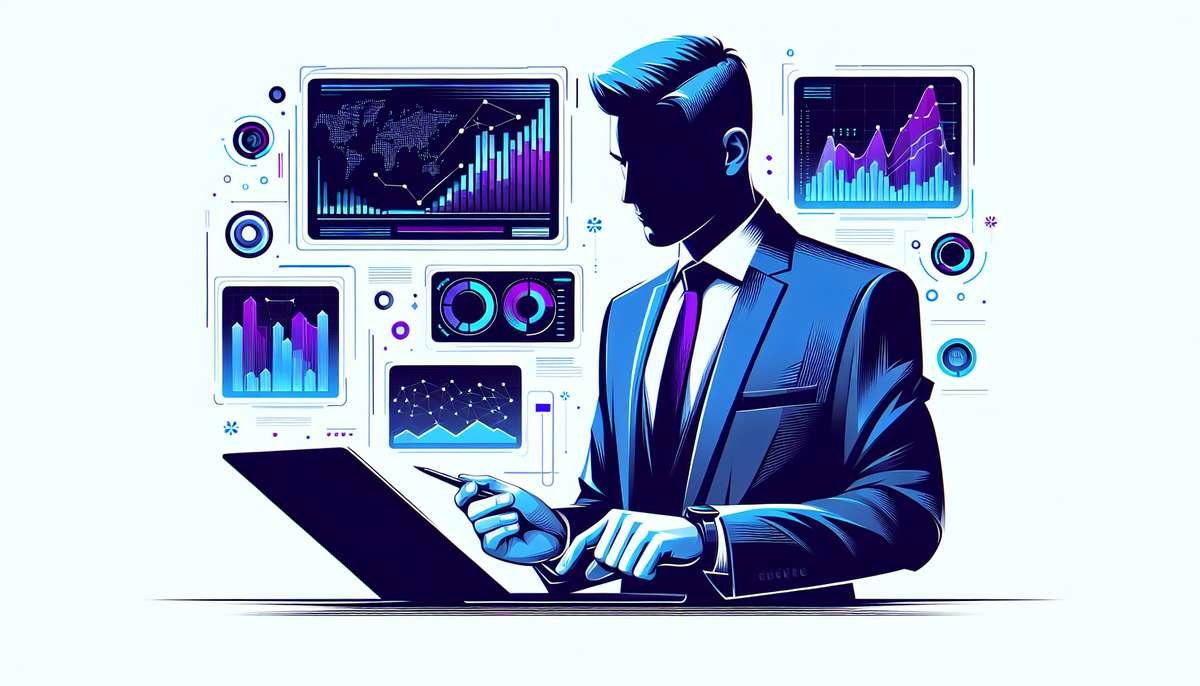
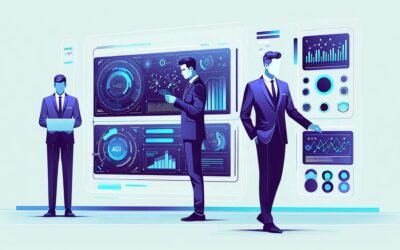
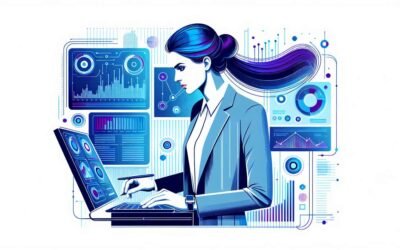
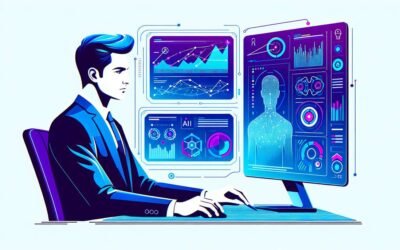
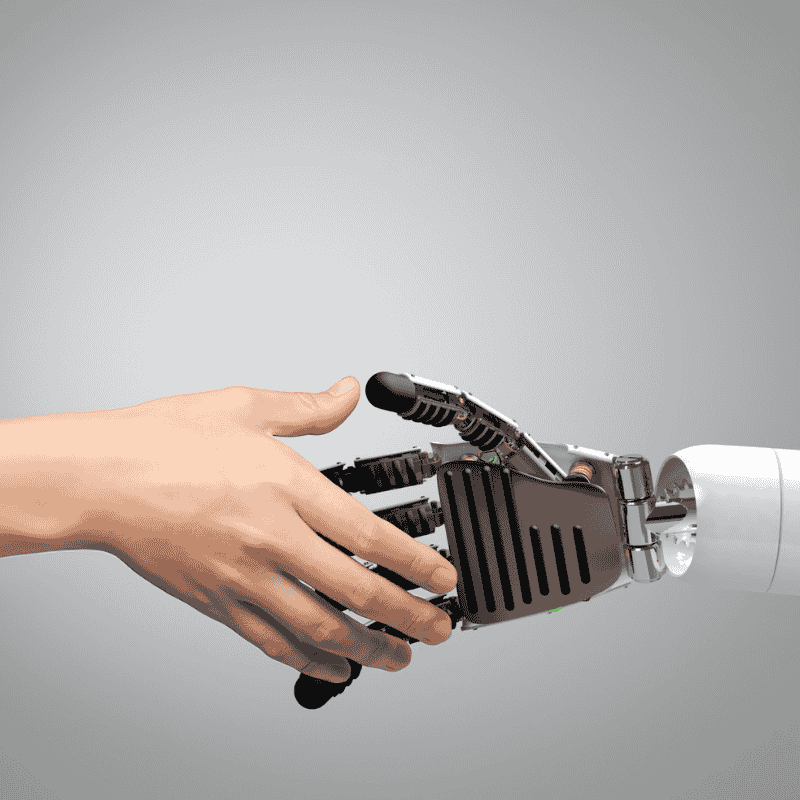
0 Comments